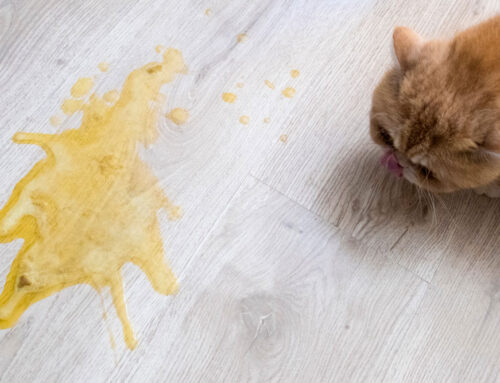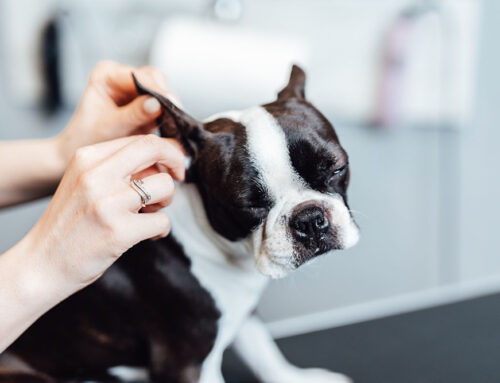Let’s start off the New Year with healthy intentions. By keeping yourself and your pets healthy, you are positioning yourself for a happy and fulfilling relationship for many years to come. You know how to keep yourself healthy. Your pet’s health is dependent on many of the same factors, including healthy food, physical and mental exercise, minimal stress, and regular doctor visits.
#1: Healthy food
Food is the source of energy, but your pet needs more than simple food. She needs a complete and balanced diet, and healthy food that includes all the vitamins and minerals her body needs to function well, no matter the day, or the adventure. You can look for the label from the Association of American Feed Control Officials (AAFCO) on your pet’s food package to check whether the food will provide a complete, balanced diet. If there isn’t an AAFCO label, you have questions, or need a recommendation, give our team a call and we will help you choose the best food for your pet.
#2: Physical exercise
Pets need exercise to burn off calories and to reduce stress. Sound familiar? Do long days at work make you feel sluggish? Imagine your dog or cat at home all day—she probably feels the same way. Think about getting your pet moving, and some exercise for yourself at the same time. Try having your own dance party while dangling a string toy for your cat to chase. If you have a dog, play a round of “chase me, then I’ll chase you.” Don’t worry about what anyone else thinks. Frolic with your pet and be rewarded with her goofy smile.
#3: Mental exercise
Dogs and cats use their brains when they hunt, chase, and try to solve problems. If your pet is grooming, licking, or chewing excessively, or progressively destroying furniture, she is likely bored and would love a brain game. You can choose from many items, such as toys that require your dog to figure out how to get the treat out of a puzzle, or a set of mice with hidden food that taunt your cat to hunt. If you want to challenge yourself, you can build your own pet puzzle—if your pet loves your puzzle, you could sell them on Etsy.
#4: Mental health for minimal stress
The veterinary profession now understands the role stress plays in our pet’s lives, and how we can help them through stress minimization techniques, supplements, and medications. If your pet hides or runs away during a thunderstorm; barks or growls at another dog, a squirrel, or a piece of flying trash outside your home; stands in one place with her body shaking and tail tucked; or excessively pants, drools, or vocalizes throughout a car ride, then your pet experiences stress. When your cat runs from something, and then stops and licks herself, she is also responding to stress.
Over-the-counter supplements and other methods can help minimize pet stress levels, such as:
- Pheromones, which can calm pets
- Thundershirts, which are known to physically comfort pets
- Providing a quiet place to serve as a refuge from the daily hustle and bustle
- Internet resources, such as the Fear Free Happy Homes website, which provides techniques to create a fear-free home
- Increased exercise, combined with training and/or prescription medications, can help decrease anxiety and stress
If you think prescription medication may help your pet’s anxiety, make an appointment at our hospital, and we will help you decide what is right for your pet and family.
Maintaining a daily routine for yourself and your pet is often overlooked as a technique for minimizing stress. Routine creates predictability. Predictability creates trust. Knowing her owner will brush her teeth every day right after she comes home from work, for example, will help to minimize a pet’s stress and fear about this daily activity.
#5: Veterinary visits

Human doctors recommend that their patients visit once per year for a physical exam. Dr. Breite recommends the same for your pets, and he recommends more frequent visits for “senior” pets over the age of 7. Since dogs and cats cannot tell us when something is amiss and tend to hide their pain, thorough physical exams by a veterinarian are our best tool for discovering any issues before they become big problems. If you wait until your pet becomes sick before she is examined, then a medical condition may be advanced, more difficult to diagnose and treat, and more expensive to treat.
Make an appointment for your pet’s exam today, and then follow our guidelines for a happy, healthy pet in 2020.








Leave A Comment